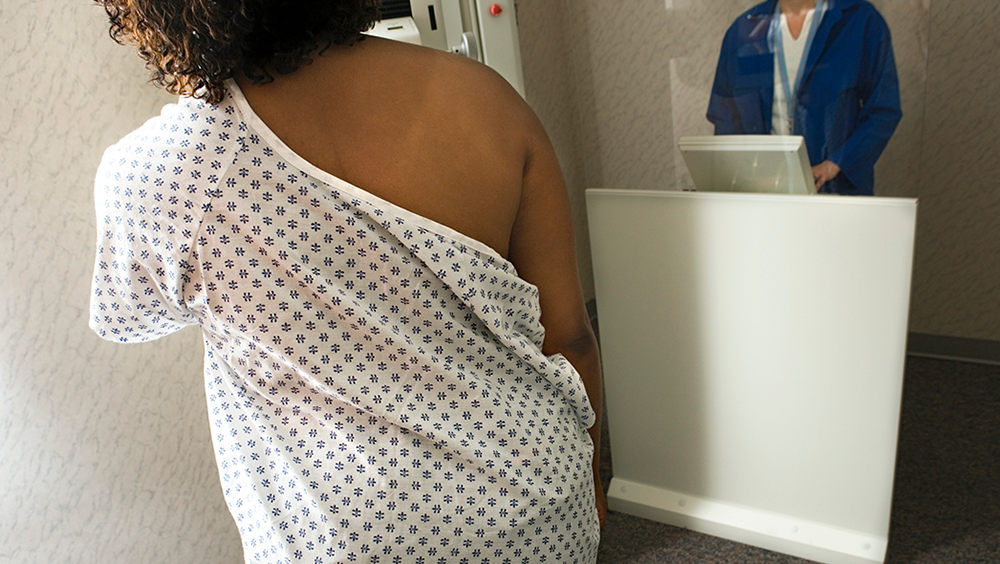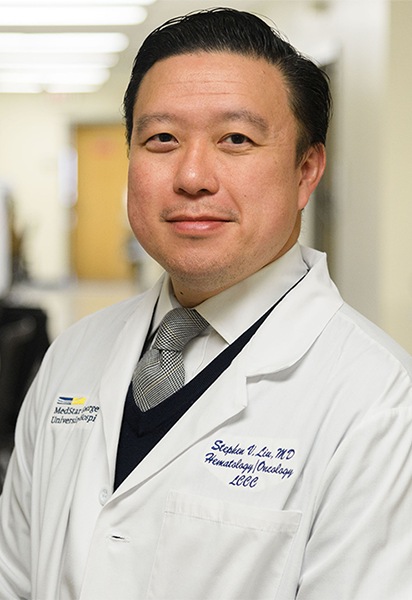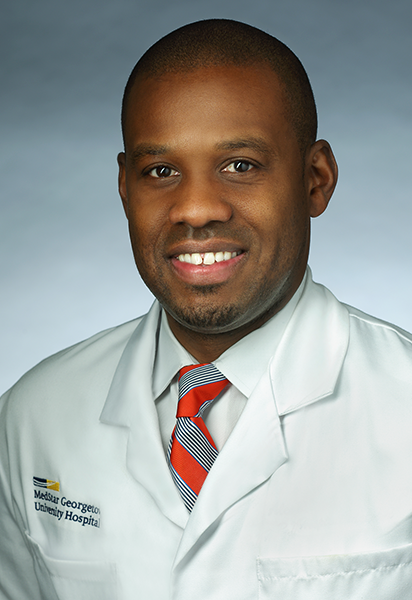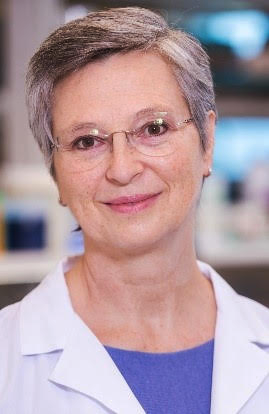Georgetown Lombardi Oncologists Encourage Patients to Keep Up with Cancer Screenings

Posted in Lombardi Stories | Tagged breast cancer, cancer, cancer screening, gastrointestinal cancer, lung cancer, telemedicine
(November 20, 2020) — If you’re due for a routine cancer screening test, you should contact your doctor to find out if it can be safely deferred until the risk of COVID-19 goes down. In contrast, if you have symptoms that could be a sign of cancer, don’t delay and don’t let the pandemic discourage you from contacting your doctor and finding out what tests should be done right away. That’s the advice of a multidisciplinary team of medical oncologists at Georgetown Lombardi Comprehensive Cancer Center.
During the first couple of months after widespread lockdowns due to the COVID-19 pandemic, many hospitals and facilities were forced to temporarily postpone routine cancer screening tests. In addition, patients were concerned about exposure to the virus and often did not seek medical care, particularly for non-urgent indications. Some patients are still not comfortable pursuing recommended cancer-related tests, even months after restrictions have been lifted.
Experts at the National Cancer Institute are very concerned that the impact of the pandemic will be felt for at least another 10 years. Data indicate that delays in screening and diagnosis of just breast and colorectal cancers could lead to an excess of 10,000 deaths from these cancers by 2030.

Delayed Diagnoses for Lung and Colorectal Cancers May Limit Treatment Options
Waiting on critical screenings or following up on symptoms can have significant consequences for patients with different types of cancers. “That delay can close the window of delivering transformative treatments to our patients with lung cancer,” says Stephen V. Liu, MD, associate professor of medicine and director of thoracic oncology and developmental therapeutics at Georgetown Lombardi Comprehensive Cancer Center. “As it is, lung cancer can progress quickly before people develop noticeable symptoms. But it is possible to detect it at an earlier stage, when in some cases, it can be curable.”
“People may be afraid to discuss this for fear they may be stigmatized,” Liu says. “I really don’t want patients to be afraid to come in. We can see patients very safely now.”
Delaying gastrointestinal cancer screenings, including colonoscopy, can also have a serious impact on a patient’s prognosis. Marcus S. Noel, MD, associate professor of medicine at Georgetown Lombardi, specializes in the treatment of patients with gastrointestinal cancers. “For my patients, even a delay of three to four months could affect prognosis,” Noel says. “Unfortunately, many of the patients I see are diagnosed with an advanced cancer.”

Noel notes that colonoscopy, a screening test to detect colorectal cancer, or precursors to cancer known as polyps, is critically important for early detection. “We absolutely do not want to miss the opportunity to find a cancer that is curable, before it spreads.” There are different approaches to screening for colorectal cancer, so it is important to talk with a primary care physician for individualized recommendations.
Screening Detects More Treatable Breast Cancers
“Breast cancers found on screening are usually smaller, more treatable and are less likely to be fatal than those picked up by other means, so it is important to continue mammography screening,” says Joyce Slingerland, MD, PhD, professor of oncology and co-leader of the breast cancer program at Georgetown Lombardi (pending). “Although a delay of one to three months in diagnosis of non-invasive cancer is not likely to be harmful, this cannot be safely said about invasive disease.”
She adds that any new breast lump should be brought to the attention of your doctor right away. “Having your mammogram at Lombardi assures an expert radiology review and an experienced team that will help you through the uncertainty of an abnormal result.” She also cautions that “if you are high risk for breast cancer, don’t avoid getting recommended exams.”

Since COVID-19 is likely to be with us for several more months, individuals are encouraged to continue routine screening if they have no COVID-19 symptoms, wear masks and maintain social distancing in waiting rooms and in the medical facility. At Georgetown Lombardi, patients are screened for COVID-19 symptoms at the door and precautions are being taken, so do not defer or delay necessary tests.
Adapting Cancer Treatments
As a result of the pandemic, some cancer treatment plans were modified to decrease the time that patients would have to spend in the clinic or hospital to receive medications. “We might prescribe oral therapies when possible or use immunotherapy more often to reduce the risk of complications in patients with lung cancer,” Liu says.
The order in which cancer treatments are given may be another factor to consider. For breast cancer patients, neoadjuvant therapy had already been used before the pandemic. This approach involves giving patients chemotherapy or hormonal therapy such as tamoxifen to shrink the tumor before surgery. “This strategy works just as well as providing these treatments after surgery,” Slingerland says. “In addition, with neoadjuvant chemotherapy, we can tell if the tumor is responding. If not, we can switch to a different drug.”
Patients Encouraged to Take Advantage of Telemedicine
Slingerland says that the key to personalizing options during this time is to communicate with your doctor. These conversations do not all have to happen in person. Telemedicine has made it more convenient to discuss these types of questions. But there are drawbacks. Slingerland says that virtual consults are obviously not a substitute for physical exams, and “there are subtle things that could be missed even when patients say they are feeling well.”
Nevertheless, doctors recognize the benefits that telemedicine has afforded during these challenging times. “I’ve been doing more second opinions from patients all over the world,” Liu says. “I’ve been able to monitor patients remotely on clinical trials. Some of these patients have not been to our cancer center since March, but they are receiving their cancer medications through the mail and getting follow-up scans through local radiology clinics.” He hopes that the regulatory authorities work through the reimbursement and physician licensure issues so that virtual service delivery can remain long after the crisis subsides.
“We minimize patient visits now, without compromising the quality of care, to decrease exposure risks,” he adds. “But after the pandemic, we should keep those changes in place for patient convenience and to give patients and their families that time back.”
Noel also hopes that remote care will continue. “The pandemic has forced many physicians to work remotely through the use of telehealth,” he says. “However, this platform can actually be more efficient and I believe will continue to have a place in clinical medicine long after the pandemic is over.”
Beth N. Peshkin
GUMC Communications
